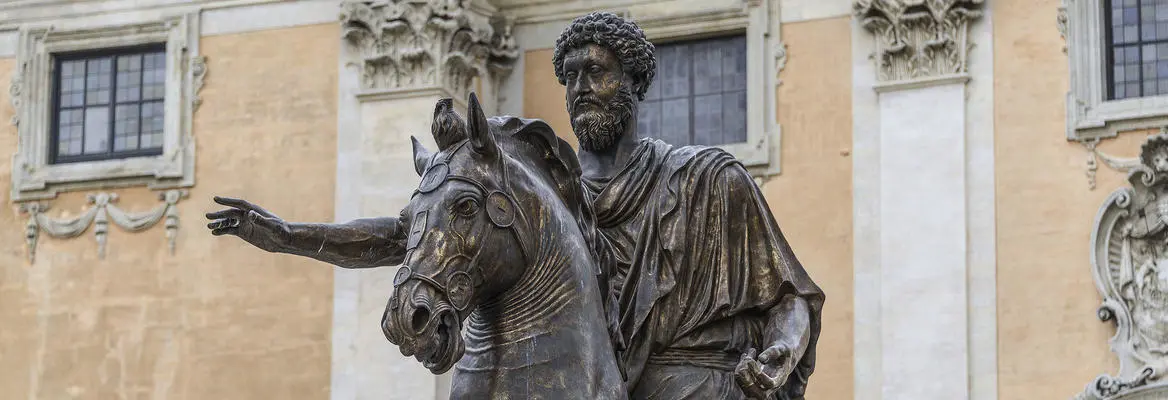Resisting speculation, remaining committed to rational thought, and keeping in mind in inevitability of disasters helped Marcus Aurelius through the Antonine Plague. Could the same principles guide us through the Covid-19 crisis?
Symptoms were first reported in the East, possibly as far away as China. Soon it was spreading throughout the West carried home by soldiers and merchants returning from their travels. Before long, outbreaks of the deadly virus were reported in one European city after another. The Antonine Plague is believed to have killed up to five million people throughout the Roman Empire. It turned into a pandemic lasting from 166 AD until at least 180 AD, when it claimed the life of its most famous victim, Marcus Aurelius, after whose dynasty, the Antonines, it was named.
It was almost as though the universe had chosen to put to the test the Stoicism for which Marcus Aurelius was famed. Indeed, a generation later, historian Cassius Dio, wrote:
[Marcus Aurelius] did not meet with the good fortune that he deserved, for he was not strong in body and was involved in a multitude of troubles throughout practically his entire reign. But for my part, I admire him all the more for this very reason, that amid unusual and extraordinary difficulties he both survived himself and preserved the empire. – Cassius Dio
The plague was clearly one of the major challenges of Marcus’ reign. Moreover, he probably began writing The Meditations not long after it began sweeping through the legionary camps, where he stationed himself throughout the war. However, Marcus only refers to the plague once in his writings, noting moral corruption of the mind is a far more serious pestilence than the physical one that corrupts the body by, as the Romans realised, somehow contaminating the very air they were breathing (Meditations, 9.2).
The plague, he says, merely attacks us physically whereas these vices attack our inner nature destroying that which is essential to our very humanity.
He mentions falsehood, pretence, indulgence in luxury, and pride, as the sort of vices he considers particularly corrosive in this regard. The plague, he says, merely attacks us physically whereas these vices attack our inner nature destroying that which is essential to our very humanity. Indeed, Cassius Dio, who served as a senator under Marcus’ notoriously degenerate son and heir, expresses a similar notion. Dio claims that in Rome alone two thousand victims often died from the plague each day, but goes so far as to say that this disease paled in comparison to the corruption being inflicted on the empire by Commodus, who ruled like a tyrant, exploiting the situation to seize more power, and even renaming the city of Rome as Commodiana.
Marcus’ solitary comment about the plague perhaps makes him appear callous. However, we’re told by another Roman author, Philostratus, that after witnessing the suffering caused, despite his Stoicism, the emperor was publicly moved to tears of compassion when he heard a decree from the Athenian assembly, exclaiming "Blessed those who died in the plague!" The Historia Augusta claims that at the height of the plague so many thousands died that their bodies had to be removed from the city of Rome by the cartload. We’re told that Marcus erected many statues to nobles who were lost at this time. In an example of the kind-heartedness for which he was known, he even ordered funeral ceremonies performed for the lower classes to be paid for by the state.















Join the conversation